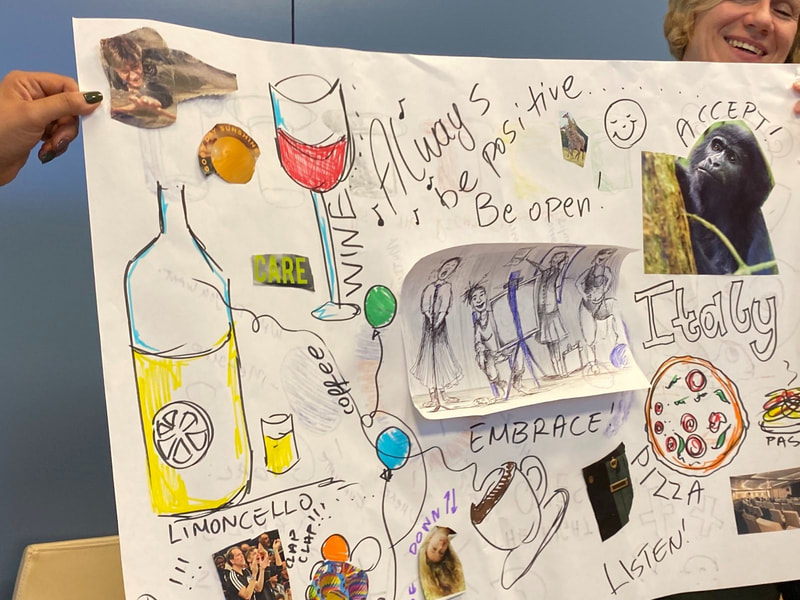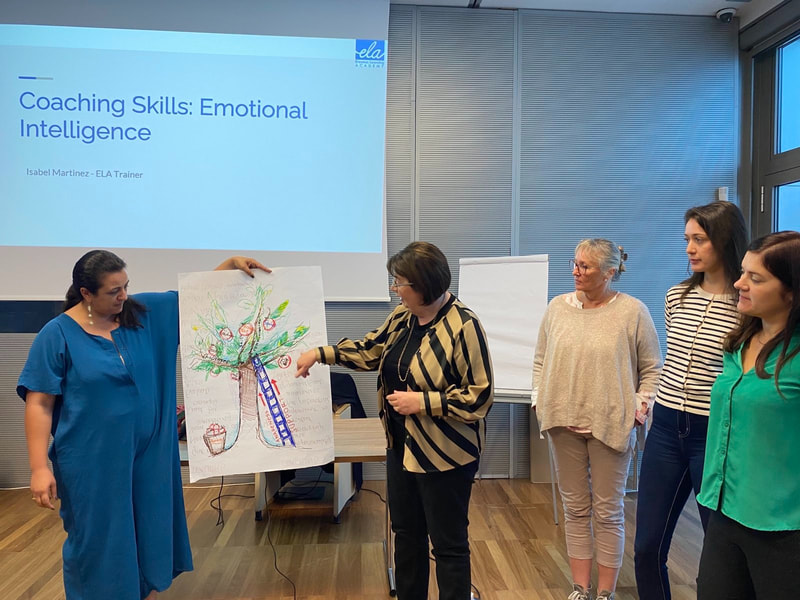|
In the realm of education, the traditional role of a teacher involves imparting knowledge and nurturing skill development among students. Conversely, a coach's function revolves around guiding, motivating, and challenging pupils through active listening and incisive questioning. What if these distinct roles could merge, empowering educators to not just teach, but also inspire and motivate? This concept was fundamental during the new edition of the course “Coaching skills for teachers, school and adult education staff” that took place in Bologna from 05/11/2023 to 11/11/2023. The participants came from all across Europe, with Ursula from Museum of Brodsko Posavlje in Croatia, Levee, Marika and Kritty from Pärnu Raeküla Kool in Estonia, Siobhan and Karen from Cork ETB in Ireland, Ioanna from Ιδιωτική Ελληνική Σχολή ΠΑΣΚΑΛ Λευκωσίας in Cyprus, Git, Ale, Vildana and Minja from Komvux Lund in Sweden, and Tine and Bjorg from Røyken videregående skole in Norway, which allowed them to exchange their experience and best practices. The course started with the exploration of Emotional Intelligence topic. This critical trait involves not just recognizing one's emotions but also empathetically understanding the feelings of others. An emotionally intelligent teacher can establish profound connections with students, aiding in their emotional management and fostering a supportive learning environment. Central to coaching is the process of inspiring others to become their optimal selves. Essential to this process is the skill of setting SMART goals—specific, measurable, achievable, realistic, and time-bound. Participants were tasked with formulating such goals for themselves, creating a roadmap to personal and professional growth. Another coaching skill that is essential inside every workplace, including a classroom, is the ability to manage conflict. Here, self-awareness and emotional regulation play pivotal roles in preventing conflicts from escalating. One of the main insights discussed was that conflicts do not have to be necessarily negative, on the contrary, they can also lead to growth and positive outcomes. Coaches, in this context, guide students towards dialogue, aiding them in finding solutions without imposing answers, instead facilitating thoughtful analysis, decision-making, and behavioral evaluation. The course also underscored the potency of questioning as a catalyst for deep thinking, self-reflection, and constructive responses. This is why during the course the participants explored the concept of formulating learning-focused questions by starting with an invitation to engage, proposing a content to think about and underlining a cognitive focus for thinking and elaborating. This training week allowed the participants to share their common experiences and to learn from their different cultural backgrounds, while also improving their coaching skills and learning how to apply them in their classrooms. It served as a transformative journey, equipping educators to effectively integrate coaching methodologies, fostering enriched learning environments. Discover more about this course here. |
Welcome to the ELA Blog. Here you will find articles and photos of our courses and have a look at the topics addressed during the week in Bologna, Palermo and Tenerife. You will also have the chance to take a peek at our projects and check out what we have been up to.
Archives
July 2024
Categories |
-
Course catalogue
- 2023-2024 course catalogue
- Soft Skills >
- ICT and New Technologies >
- Inclusion and Diversity >
-
Innovative Teaching Methods
>
- Innovative teaching methods discovery
- Non-formal education teaching methods
- Dual education and work-based learning
- Teaching leadership and entrepreneurship
- Project based learning
- Game based learning and gamification
- Green skills
- Outdoor education
- Outdoor education trekking edition
- Promoting creativity and critical thinking
- Languages and EU projects >
- Preschool >
- Erasmus Plus KA1
- What we do
- About us
- Locations
- Blog
- Contact us
 English
English български
български Čeština
Čeština Español
Español Français
Français ελληνικά
ελληνικά Italiano
Italiano Polski
Polski Português
Português Română
Română

 RSS Feed
RSS Feed









